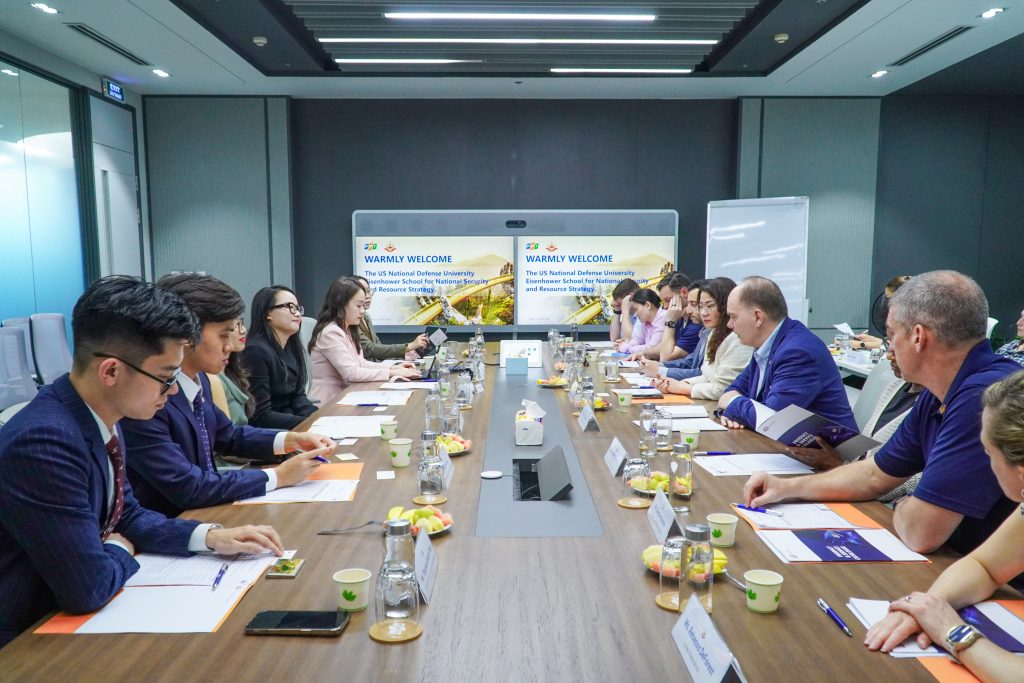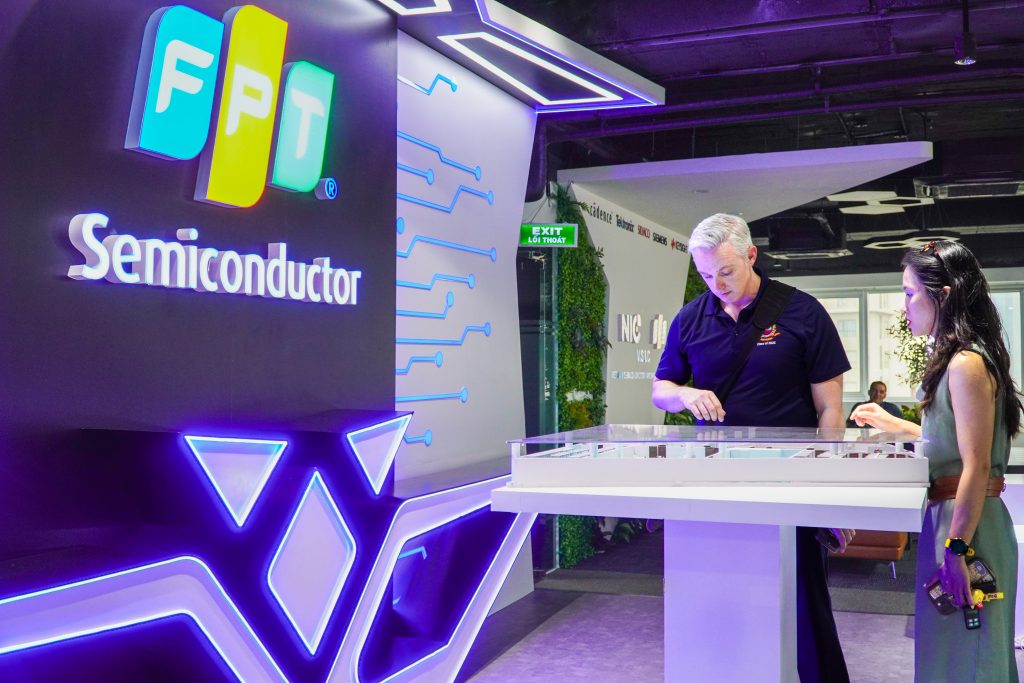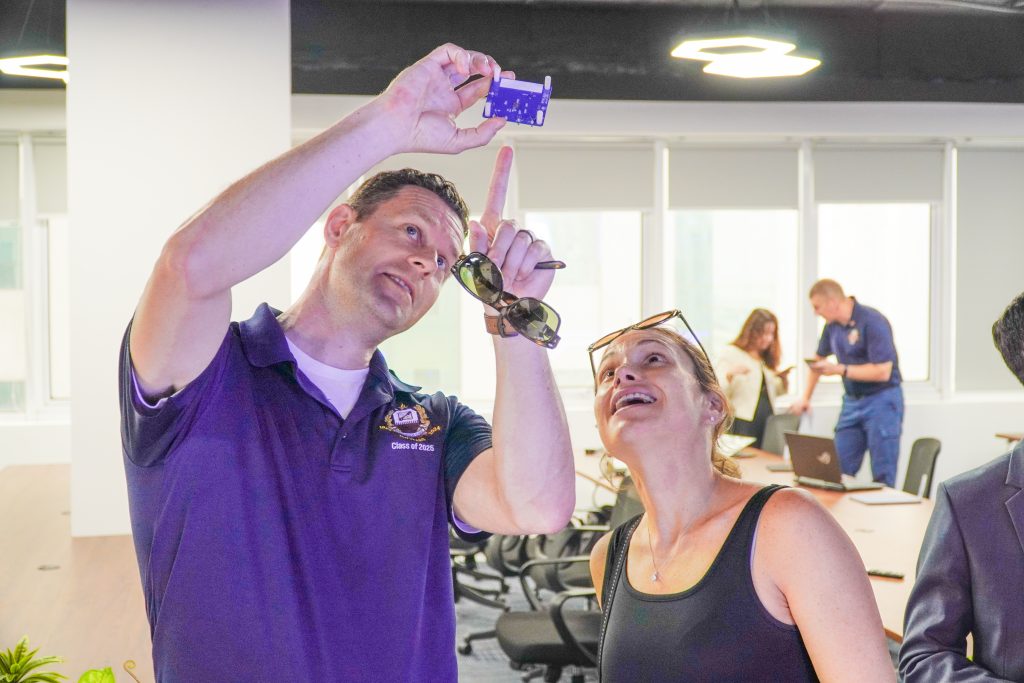On April 11, 2025, FPT Semiconductor, FPT Education and FPT Software had the honor of hosting a delegation from the U.S. National Defense University (NDU) for an official visit and discussing session. This visit was honored by the presence of the delegation from the U.S. National Defense University (NDU), the Eisenhower School of NDU, along with the representatives of the US Embassy in Vietnam and 15 Master’s students at the Eisenhower School, currently working at the US Department of Defense. The trip marked an important step forward in promoting Vietnam – US cooperation in science and technology between the two countries.

NDU Highlights Strong Collaboration Potential with Vietnam in the Semiconductor Sector
Why NDU Is Visiting Southeast Asia

The Eisenhower School’s Microelectronics Industry Study in Academic Year 2025 examines U.S. national security and resource strategy through the lens of the semiconductor, which forms the foundation of microelectronics and allows for the development of advanced and rapidly developing technologies, systems, and devices critical to the U.S. economy, national security, and defense.
Vietnam: A Strategic Pillar in the U.S. Semiconductor Roadmap for Southeast Asia to boost partnership between Vietnam and US

The delegation also emphasized that one of their key interests is to develop a semiconductor value chain across Southeast Asia, in which Vietnam plays a crucial role.
According to the Journal of Economics and Forecasting, within the “Conference on Human Resources Development for the Semiconductor Industry”, Minister of Planning and Investment, Mr. Nguyen Chi Dung affirmed that Vietnam has experienced a “once-in-a-lifetime” opportunity to enter the global semiconductor value chain with four key elements as following:
(1) strong political endorsements at the national scale to aid this industry,
(2) a favorable investment and business execution landscape, which has attracted significant FDI from leading international electronics corporations, with over 50 semiconductor firms that are operating in Vietnam, such as Intel and Amkor (advanced packaging and testing), Cadence, Renesas and Qorvo (IC design) and Lam Research and Coherent (equipment manufacturing),
(3) skillful and cost-effective labor forces who have already been active in the electronics field, with 50% of workforce under the age of 30.
(4) recent upgrade of strategic partnerships, particularly elevating the Vietnam – U.S. relationship to a Comprehensive Strategic Partnership, with the focus of cooperation in innovation and advanced technologies in which semiconductors play as a key sector.
During the visit, the NDU delegation expressed admiration for Vietnam’s spirit of innovation and its strong commitment to advancing the semiconductor industry.
Strengthening Partnership between Vietnam and US
As part of the delegation’s visit to deepen U.S.–Vietnam cooperation, NDU representatives visited the FPT headquarters and the Vietnam Semiconductor Innovation Center (VSIC). At VSIC, the delegation was introduced to FPT Semiconductor’s “FPT Chip Inside” ecosystem, including products such as the Power Management Integrated Circuit (PMIC), the FPT Access Control System (FAS), and various other applications developed by FPT’s engineering team.

During a working session, representatives from FPT Semiconductor shared updates into the progress of Vietnam’s semiconductor industry — with a particular focus on IC design and the training and development of high-quality human resources for the IT and semiconductor sectors. These efforts align closely with NDU’s mission and focus areas for 2025.
This visit has marked a significant step forward in promoting bilateral cooperation in science and technology between Vietnam and the United States. It also strengthened the strategic importance of the semiconductor field to ensure economic security and national defense in the digital landscapes.